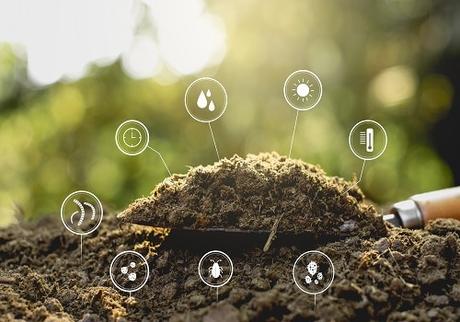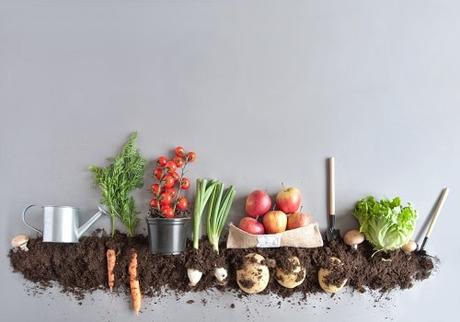Composting is a great way of using up all organic ingredients, including nature's decay. It's not hard to do at all, and a pile of compost will provide you with a fatty, dark substance that's incredibly helpful for improving your garden's soil. Moreover, improved soil will better nurture all the plants in the area.
Another reason why composting is so important is that it keeps all of your yard waste and kitchen waste from ending up in landfills. It can be recycled into compost, which helps grow flowers, fruits, vegetables, and shrubs. It's a great way to incorporate more sustainable practices at home and getting the most out of the food you buy. And, if you grow big enough of a vegetable or fruit garden, will save you money in the long run as you cultivate your own kitchen supplies.

Backyard composting is a very easy and straightforward process. Moreover, composting can be quite an exciting and fun process. But to know how to start a compost pile properly, it's advisable to slow down and carefully plan before purchasing your plants. You must plan everything before you decide to create your first compost heap.
These are the essential things you'll need before making your compost:
Vital Equipment and Tools
Before you can make your very own compost pile, you need some specific tools and equipment to do so. Like in any job, essential tools are necessary so you could do the job correctly. One of the tools you need is the shovel for digging and turning over soil and compost. Without it, you won't be able to complete all the steps in creating your compost pile quickly. Additionally, a pitchfork is an optional tool that will come quite handy during the compost preparation process. Both tools are essential for preparing, mixing, and placing ingredients into your compost.
Moreover, a garden hose is an essential part as well. Making a compost pile requires a lot of yard work, and the gardening hose is helpful since you can easily water the ground to make it soft, including the compost-making elements like food scraps and others. Water will help dissolve all the scraps releasing the nutrients and minerals that will provide you with healthy soil.
You may also want a rake, especially if you want to take advantage of fallen leaves and similar yard detritus for your compost heap, a trowel for turning over soil on a smaller scale, and some gardening gloves to protect your hands while you hand all of these tools and materials.
Additional Equipment and Preparation
As much as it sounds fun, composting can be quite a relaxing process. However, there are some things you need to think about in advance to make composting straightforward and smooth. It's essential to choose the spot in your backyard where you'll be making your compost.
When you've decided where you'll make your compost pile, make sure to use concrete blocks to designate your composting area and to distance the composting area from the rest of your garden. All your household waste and kitchen scraps will remain in the designated area instead of littered all around the yard.
You can also use untreated wood pallets to secure your garden's composting area so the composting material won't mix with natural soil. Moreover, placing these pallets around the composting area in your garden will keep away anyone who might enter the composting area without knowing what it is. Composting is a process that requires some time for nature to do its work. Therefore, keeping it safe is essential.
Keep Your Compost Dry
Composting is best done in spring or summer when temperatures are high, which will accelerate the decomposition process. You can, of course, compost in the autumn and winter as well, but you may need to take some extra precautions.
When composting, you generally want to keep your heap damp, but not very wet or too dry. To maintain this, you may need to add water or new, dry material as needed to maintain the appropriate level of moisture.
If you live in a snow-prone location, you will want to keep the snow from burying your heap or soaking it through. Wire mesh or snow fencing is an optional solution that'll help you keep your compost soil snow-free.
You may also want to keep a small tarp or similar covering tented over the compost heap, especially if you live in a place with very high levels of precipitation and you're worried about rain overly soaking your compost heap.
Use Organic Compost You Already Have or Buy Finished Compost
Using the existing compost materials you already have within your home, like organic waste or food scraps, is probably a better solution. By doing so, you'll reconnect with nature and in all its glory. It's quite interesting how the circle of life functions and, by using the organic materials you've produced, you'll see firsthand how everything is used for a good purpose.

Of course, you can always buy a finished compost pile at the gardening store. However, keeping the compost pile in one place isn't easy, and you'll need a compost bin as well as a dedicated place for collecting your organic waste before you start making your compost pile. In case you're living in a small apartment without a garden, you should consider keeping your compost pile in a compost bin.
If you want to get started using compost sooner rather than later, you could use bought composting material as a jumping off point and refresh it with your scraps and waste to maintain your supply.
Wrapping Up
Making a compost pile is a great way to use nature without harming it in any way. Compost will allow you to nurture your soil and make it healthy for all of your plants. However, it's essential to prepare yourself for compost making before you begin the process. If you don't, some things might take a lot of your time and energy if you start doing it unprepared.
